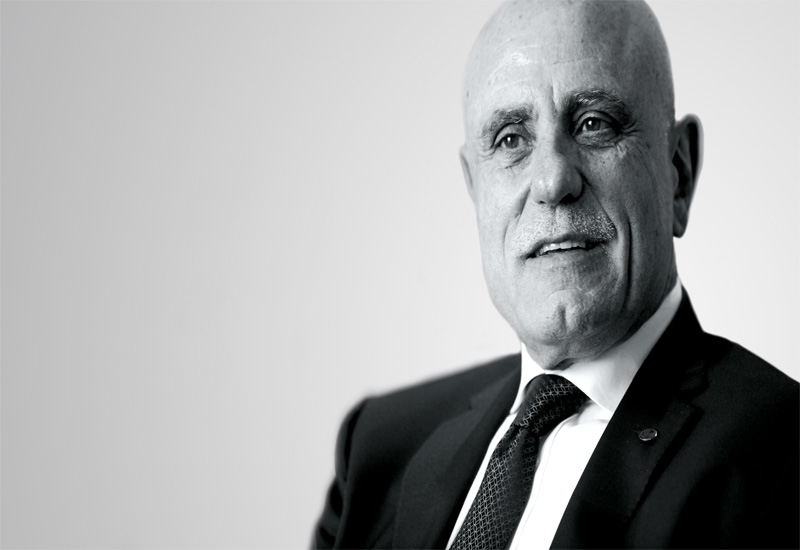Starting Small
One reason El Zyr inspires so many is because of his background holding hands-on roles in operations. A Lebanese national, he says he knew he wanted to be a hotelier since he first stepped into a hotel in 1964.
He started his first job as a chief steward at the Waldorf-Astoria New York. In 1973 he came to Abu Dhabi with just a couple of thousand dirhams to his name, inspired by Ahmad Nahas who was the area vice president at that time for Hilton.
A 12-year career with Hilton ensued, followed by a brief stint founding fast food chain Juicy Burger in Lebanon in 1982, before returning to the UAE with Abu Dhabi National Hotels. While successful working with others, El Zyr was aware there was a significant gap in the Middle East hotel market; one that he felt compelled to fill.

| Advertisement |
“I discovered that there is a gap between global companies — what they promise and what they deliver. And the gap was with the developers, who did not understand what to expect from a management company. There was a cultural gap, there was an expectation gap, there was a communications gap,” he recalls.
With life-long friend Nasser Al Nowais, chairman of Rotana, El Zyr created Rotana to bridge this gap and align the expectations of developer and operator, a principle that remains core to the company today.
Even at the outset, the “initial agenda” was to compete with international operators, and so great time and care was taken to create, write and record thousands of policies. Nothing was copied or compiled from the expertise of others.
“One person had to write everything, do everything,” says El Zyr. “Our objective was to build an institution. There has been bumps and barriers but from day one, we started putting one brick in every day to build this wall.
“Now of course what you can do is you can start a hotel management company today by hiring 10 or 20 people — put them comfortably in an office and you start writing policies and procedures and then you go out shopping and bidding for companies. Now this is one way, and the other way is the way we started. So we started the tough way, brick-by-brick. We have hand-built this company.”
The turning point came when Rotana started to amass operating hotels, with portfolio targets shifting upwards each time another 10 or so properties joined the fold. El Zyr says he remained realistic, setting achievable targets and only pinpointing the magic number of 100 hotels by 2020 in recent years.
“We are very close to 100. I told myself and I told the future CEO that in two years I’ll give you 100 hotels and go. So he will have 100 in the system, of course,” asserts El Zyr.
Currently, the announced total portfolio stands at 85 hotels, but El Zyr says that actually there are around “96 or 97, although this number can change every minute”.
He’s confident that the 100-target will be met before 2020 and this in part will be achieved through expansion beyond the Middle East, although he admits there is still a lot to learn beyond the core base.
“The attitude of investors towards hotels is completely different. I don’t want to say we are in a learning process because learning is an endless process. We are still learning in Abu Dhabi today; if there is a project, we go and learn about it. So, we have passed the learning process in some countries like Turkey, like India. But learning does not mean successful projects. Learning means acquiring the knowledge and starting to understand,” he explains, adding that Africa is the next place to discover.
Just as the company was built organically, expansion overseas will follow the same model. El Zyr is adamant Rotana will not force expansion by opening offices intended purely to sign deals in markets the company does not yet understand.
“The growth of Rotana in the Middle East now is almost mature and completed. I mean, you cannot go anymore into cities where you have three, four or five hotels or more sometimes. So you have to go either to secondary cities or to grow overseas. So our natural course will be going overseas.
“But it is not a forced growth. I mean, forced growth is to go and open an office in China and in Russia and then this office will look for opportunities. That is really a forced growth.
What we are doing is completely different; we are going naturally, we are taking it step-by-step, we are still servicing these hotels that we have taken overseas from this office in order to avoid the mistakes that were made by major companies.
I have seen many, many companies grow to a certain dimension then all of a sudden they grow so much that they have to chop heads,” he laments, explaining that Rotana’s approach is less risky in this element.
Article continues on next page ...









 Search our database of more than 2,700 industry companies
Search our database of more than 2,700 industry companies









